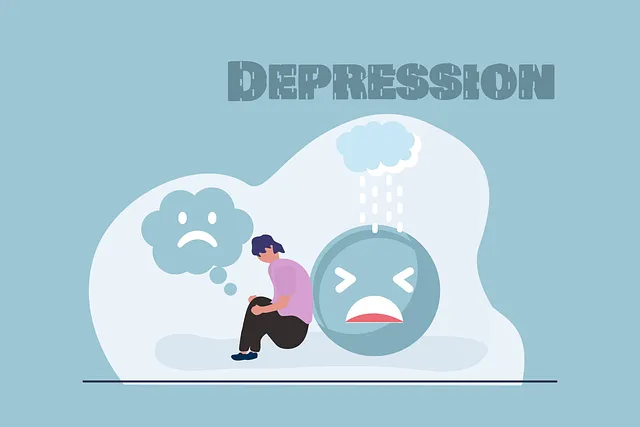Boulder Kaiser Permanente mental health locations are actively addressing burnout among healthcare providers through various evidence-based interventions, including training in coping skills, stress management, mindfulness, and cognitive behavioral therapy. They prioritize open communication, work-life balance, and employee well-being by providing counseling services, social skills training, and dedicated support spaces. These initiatives not only mitigate burnout but also enhance patient outcomes by fostering a compassionate and effective care environment, ultimately promoting long-term job satisfaction for healthcare professionals.
Burnout among healthcare providers is a growing concern, particularly at organizations like Boulder Kaiser Permanente’s mental health locations. This article explores comprehensive strategies to prevent burnout, focusing on understanding its signs and causes, cultivating supportive work environments, and implementing evidence-based interventions. By examining these key areas, we aim to provide practical tools for Boulder Kaiser Permanente mental health staff to thrive in their roles and deliver exceptional patient care.
- Understanding Burnout: Recognizing the Signs and Causes at Boulder Kaiser Permanente Mental Health Locations
- Creating a Supportive Environment: Strategies for Prevention and Employee Well-being
- Implementing Effective Interventions: Evidence-based Practices to Combat Burnout among Healthcare Providers
Understanding Burnout: Recognizing the Signs and Causes at Boulder Kaiser Permanente Mental Health Locations

Burnout among healthcare providers is a growing concern, particularly within mental health settings like Boulder Kaiser Permanente locations. Recognizing burnout early is crucial for maintaining a healthy work environment and ensuring patient well-being. Signs of burnout can include emotional exhaustion, depersonalization, and reduced personal accomplishment. Healthcare workers at Boulder Kaiser Permanente mental health locations may experience these symptoms due to high caseloads, emotional demands, and sometimes, a lack of support systems.
Several strategies can help prevent and mitigate burnout. At Boulder Kaiser Permanente, promoting coping skills development through training sessions is one such initiative. Encouraging open communication and providing resources for stress management are also vital. Additionally, fostering cultural sensitivity in mental healthcare practice and implementing social skills training can create a more supportive atmosphere. These approaches not only benefit the providers but also enhance patient outcomes by ensuring a compassionate and effective care environment.
Creating a Supportive Environment: Strategies for Prevention and Employee Well-being

At Boulder Kaiser Permanente mental health locations, creating a supportive environment is paramount for preventing employee burnout. This involves implementing strategies that foster open communication, encourage work-life balance, and prioritize mental wellness. One effective approach is to promote regular mental health check-ins among staff, providing dedicated spaces for emotional support and shared experiences. Additionally, offering on-site resources like counseling services and stress management workshops helps employees navigate challenges proactively.
Integrating practices such as journaling exercises and social skills training further enhances well-being. These activities not only offer guidance for managing stress but also encourage self-reflection and meaningful connections among colleagues. By cultivating a culture of care, Boulder Kaiser Permanente ensures that its healthcare providers feel valued, empowered, and equipped to handle the demands of their profession, ultimately preventing burnout and promoting long-term job satisfaction.
Implementing Effective Interventions: Evidence-based Practices to Combat Burnout among Healthcare Providers

At Boulder Kaiser Permanente mental health locations, recognizing and addressing healthcare provider burnout is a top priority. Implementing effective interventions grounded in evidence-based practices plays a pivotal role in fostering a resilient and motivated workforce. Strategies such as Crisis Intervention Guidance (CIG) offer immediate support to providers facing acute stress or emotional distress, helping them navigate challenging situations and prevent burnout.
Additionally, resilience building techniques like mindfulness training and cognitive behavioral therapy (CBT) empower healthcare professionals with tools to manage stress, enhance coping mechanisms, and boost their overall well-being. Resilience-focused programs not only help providers maintain a healthy work-life balance but also contribute to improved patient outcomes by ensuring staff members are emotionally equipped to deliver high-quality care. Moreover, confidence-boosting initiatives, including peer mentoring and professional development opportunities, encourage open communication, promote self-care, and cultivate a supportive environment that values the well-being of every healthcare provider.
Burnout among healthcare providers is a pressing issue, but through proactive measures, organizations like Boulder Kaiser Permanente mental health locations can foster a supportive environment and implement effective interventions. By recognizing signs early, creating safe spaces for open communication, promoting work-life balance, and adopting evidence-based practices, we can combat burnout and ensure healthcare professionals remain dedicated and resilient. Investing in these strategies is not just beneficial for individual well-being; it strengthens the overall health and sustainability of the healthcare workforce.






